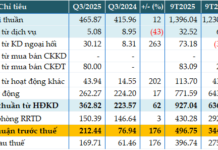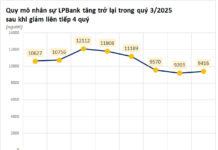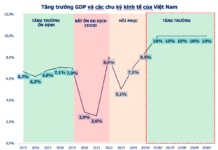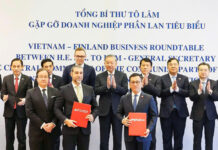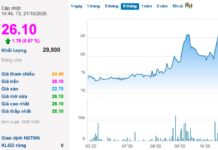Upgrading the Securities Market: Challenges and Considerations
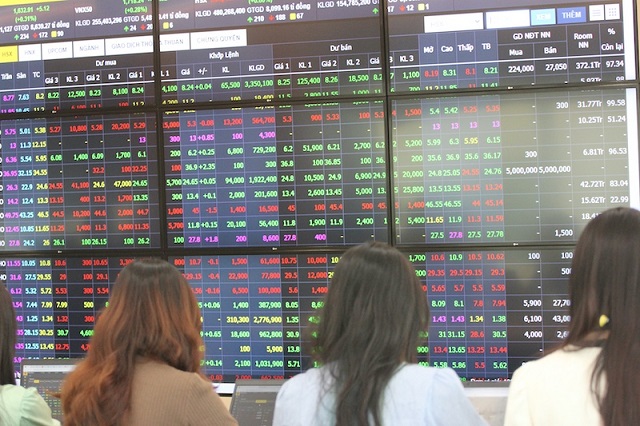
Resolving issues to achieve the goal of upgrading the market as planned is not an easy task for Vietnamese regulators. Photo illustration: Le Vu
|
Not only resolving pre-trading margin issues
The goal of upgrading Vietnam’s stock market from frontier to emerging has been on the agenda for a long time, since FTSE Russell included Vietnam in its watchlist for upgrading to the secondary emerging market in 2018. But when the assessment was conducted in March 2024, the organization still kept Vietnam on the watchlist.
Similarly, MSCI has yet to include Vietnam in its watchlist for upgrade consideration, citing that the criteria have not changed from the assessment a year earlier.
Ketut Kusuma, an expert from the World Bank (WB), recommends that Vietnam focus on addressing three urgent issues: pre-funding, foreign investor ownership ratio, and commodity grading.
The expert cites the fact that the Vietnamese stock market has 1,599 listed and traded companies, while regional markets have only a few hundred companies but have larger capitalization. This indicates that the scale of Vietnamese enterprises is too small, resulting in a low proportion of shares available for foreign investors to purchase. To purchase a significant number of shares, foreign investors have to buy at a much higher price than the market price.
In fact, the ranking of the top ten most capitalized stocks on the HOSE exchange only reflects changes in ranking, with no new commodities appearing in the top ten over the past decade, even though many large companies have yet to list their shares on the stock exchange.
To address the issue of pre-funding, Duong Ngoc Tuan, Deputy Director General of Vietnam Securities Depository (VSDC), said that the current solution focuses on removing the bottleneck for foreign institutional investors, who account for a large proportion of total trading. This is because this group has high compliance and has not experienced any payment defaults due to lack of funds.
The principle is to allow securities companies to assess the ability of the company and determine the margin level to ensure that foreign investors can make timely payments. At the time of settlement, if the investor is unable to make the payment, the obligation will be transferred to the proprietary trading department of the securities company. The securities received will be processed by the securities company to recover the funds disbursed.
However, challenges must be met in the event that the investor does not have sufficient funds on the settlement date, such as the time required to resolve technical issues like transferring payment obligations. In addition, if the securities company fails to arrange sufficient funds, it will affect the safety of the settlement process.
“To control the risks, we are considering setting transaction limits for market participants,” said Tuan at a workshop held in mid-April 2024.
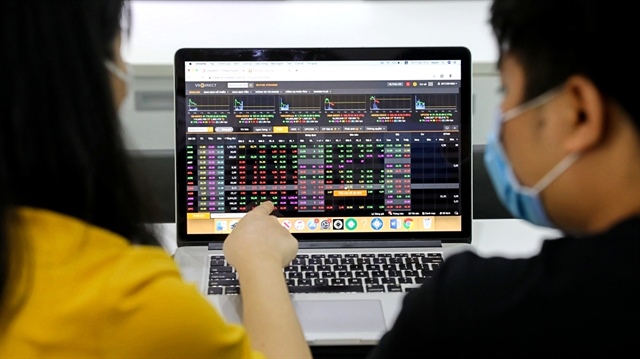
Improving investor quality is one of the essential conditions for the sustainable development of Vietnam’s stock market. Photo illustration: DNCC |
According to Tuan, securities companies need to ensure the trading volume executed for foreign investors. In addition, the payment capacity of the securities company must be sufficient to cover payments in case of a worst-case scenario.
“We consider this to be the key to managing risks when implementing this new trading mechanism,” Tuan emphasized.
On the securities company side, Trinh Hoai Giang, General Director of Ho Chi Minh City Securities Company (HSC), believes that eliminating pre-trading margin requires meeting several requirements: circular (already issued); regulations for securities companies and investors to meet eligibility requirements; standardized payment instructions from VSDC; model contract or notice of transaction limit with investors.
Meanwhile, Nguyen Khac Hai, Head of Legal and Compliance at SSI Securities Company, assesses that both short-term and long-term solutions to the pre-funding issue create pressure on capital and system upgrades, as the risk liability is significant for securities companies. Therefore, it is necessary to implement multiple solutions to enhance the capacity of securities companies to provide services to foreign investors in the market.
“The responsibility for settling transactions for investors lies with the securities company. Therefore, it is inevitable that securities companies must prepare substantial capital resources to mitigate payment risks,” Hai said.
In Vietnam, most companies plan to increase their capital in 2024 and 2025 as a step to prepare for these changes in the market. In addition, these companies will have to upgrade their systems to connect online with foreign investors to enhance order execution capabilities.
Besides the issue of pre-funding, Vietnam’s stock market also faces a number of other issues that need to be addressed. If these issues are left to be resolved solely by the securities industry, the goal of upgrading the market will be difficult to achieve on schedule.
Specifically, the accessibility of information for foreign investors in the Vietnamese market, according to international rating organizations, is still limited and needs to be improved. A typical example is the disclosure of information in English.
The proposed solution is to require large public companies (with owner’s equity of 120 billion VND or more) to publish information in English for periodic disclosure. For public companies with owner’s equity of less than 120 billion VND and for the disclosure of irregular information, it will be implemented later.
To implement this, the State Securities Commission (SSC) has requested relevant agencies to review industries and disclose information transparently in English so that investors can easily access information at the enterprise level. The Ministry of Planning and Investment (MPI) has also been asked to coordinate with ministries and sectors to review industries where ownership ratios can be expanded, especially non-essential industries.
According to the plan, the SSC will revise a number of regulations on the disclosure of information in English and on a periodic basis, which will apply to public companies and listed companies from January 1, 2025, irregular information from January 1, 2026, and then apply to all public companies.
Thus, to meet the seemingly simple criterion of disclosing the ownership ratio of foreign investors in public companies, it requires the participation of many stakeholders.
Cautious About Post-Upgrade Variables
In addition to the goals and benefits of upgrading the market, one question that arises is “after upgrading, efforts must be made to maintain the upgrade.” In fact, there have been markets like Argentina that were upgraded but later downgraded because they failed to maintain the necessary conditions.
Vu Chi Dung, Director of International Relations Department under the SSC, said that securities companies will have to upgrade their systems to connect online with stock exchanges and foreign investors to enhance order execution capabilities. The higher market volume, along with the development of products that allow investors to increase capital turnover such as short selling and day trading, leads to an increase in the number of trading orders. This makes it imperative for securities companies to have the capacity to receive and process trading orders from investors in general.
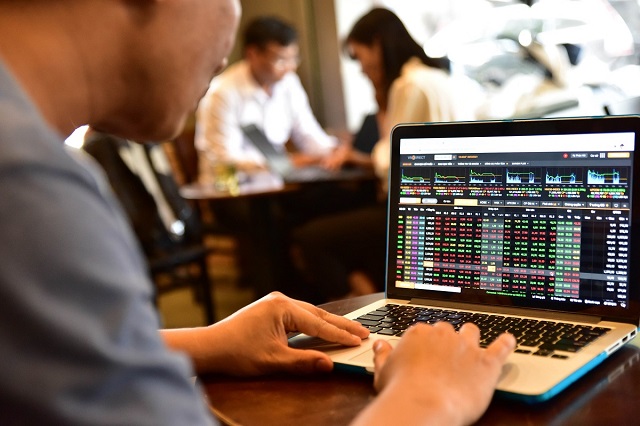 The stock market is improving its quality to avoid the situation of upgrading and then downgrading again. Photo illustration: DNCC
|
In addition, the market’s failure to maintain its attractiveness after the upgrade could lead to the risk of a sharp decline when foreign investors withdraw their capital.
Experts from the Financial Market Development Department (Institute of Strategy and Policy on Financial Management) said that the withdrawal of capital by foreign investors is not necessarily due to domestic factors but to fluctuations in the international market.
The period 2022-2023 witnessed a trend of withdrawal from frontier markets (including Vietnam) by foreign capital (foreign capital) to return to the US as the Fed maintained high interest rates.
This was a period when foreign capital did not account for a large proportion of Vietnam’s stock market, but the leading role of this capital flow was still evident. For example, from October 2022 to January 2023, foreign investors made massive net purchases on the Vietnamese market, after a deep drop in the VnIndex. In addition, the emergence of some supportive information such as the decline in the USD exchange rate and China







